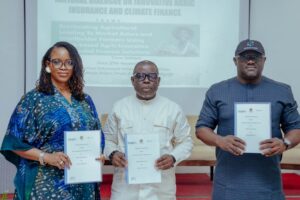
By Tobias Alando
One November afternoon in 1999, three presidents—Daniel arap Moi of Kenya, Ali Hassan Mwinyi of Tanzania, and Yoweri Museveni of Uganda—met in Arusha to sign the Treaty establishing the East African Community (EAC), reviving a partnership that had collapsed in 1977 amid mistrust and economic rivalry. When it came into force on 7 July 2000, under the bold motto One People, One Destiny, it signalled a renewed era of regional co-operation, promising freer movement of goods, services and opportunities across borders—a second chance that business owners, traders and citizens hoped would finally turn proximity into prosperity.
The symbolism was powerful in both big and small ways. A Nairobi manufacturer should trade with a partner in Dar es Salaam as easily as with one in Machakos. A farmer in Dodoma should sell to Kampala without feeling they were crossing into a foreign market. And then there was the sky-blue EAC passport—issued alongside, not in place of, national passports—embossed in gold with the holder’s country beneath. It promised visa-free travel across partner states, easier business trips, and stays of up to 90 days without extra paperwork. The region, it seemed, was finally walking the talk.
Regional integration follows deliberate, ambitious steps: from preferential trade area to free trade area, customs union, common market, monetary union, and ultimately political federation. The EAC has come further than most African blocs. Today, on paper, we are a common market. In reality, that seamless trade remains elusive.
The dream matters because there is power in size and solidarity. The EAC is the largest single market for its members. For manufacturers, it promises larger demand, greater competitiveness, shared stability and collective bargaining power globally.
Yet we have fallen far short of that potential. Intra-EAC trade stands at about 14%. Set against the European Union—where internal trade flows reach roughly 69%—the gap is impossible to ignore. Instead of a seamless market living up to the promise of One People, One Destiny, we have a patchwork of competing silos, where non-tariff barriers and protectionist policies chip away at shared prosperity.
This is especially troubling in today’s volatile global trade environment. From shifting geopolitical alliances to rising tariffs and supply-chain disruptions, the message is clear: we must diversify our markets to sustain growth. Strengthening sourcing within the EAC offers a strategic shield against unpredictable global shifts, building resilience and stability for our industries.
According to the EAC Secretariat, partner states have lost about 30% of potential trade to these barriers. Put simply, third-party countries benefit more than EAC members, enjoying over 60% of regional trade once petroleum imports are excluded.
Consider, in this context, recent measures by the United Republic of Tanzania. Through the 2025/2026 Finance Act and amendments to the Excise (Management and Tariff) Act Cap 147, the Import Control Act Cap 276, and the Exports Tax Act Cap 196, Tanzania introduced restrictions affecting roughly 80 products across steel, dairy, meat, sausages, food, automotive and hygiene sectors. Applied to goods originating from EAC countries, including Kenya, these measures touch products that account for approximately 26% of Kenya’s transfers to Tanzania.
This is not an isolated incident. In the past, several EAC states—including Kenya, Uganda and Rwanda—have taken protectionist steps that shut out fellow partners. Tanzania’s latest actions echo these moves: unilateral measures without regional consensus that deepen fragmentation and undermine the very purpose of our common market.
Imagine the impact on a steel manufacturer who has spent years building a customer base in Dar es Salaam, only to find their products suddenly more expensive at the border than steel imported from Asia. Or a Tanzanian dairy processor that depends on Kenyan-made packaging machinery but now faces delays and higher costs due to retaliatory measures. Such barriers frustrate businesses, raise consumer costs, limit choice and stifle job creation. While protectionist policies may offer short-term relief to local industries, they ultimately erode trust, invite retaliation and weaken the region’s global competitiveness.
They also run counter to the spirit and letter of our agreements. Article 75(6) of the EAC Treaty and Article 15 of the EAC Common Market Protocol commit partner states to refrain from laws or administrative measures that directly or indirectly discriminate against like products from other partner states. The WTO’s National Treatment principle says the same: once a product has entered your market, it should be treated no differently from a domestically produced good.
The EAC has the institutional tools to fix this. The Summit of Heads of State—our highest decision-making body—can set the tone for compliance. Ministerial and technical meetings can iron out specific disputes. But this requires political will: partner states must give EAC law primacy over national law in matters of regional trade. Reported non-tariff and technical barriers should be resolved within clear, time-bound frameworks. And we must embrace a genuinely regional definition of “domestic”: products made within the East African Community should count as local across the bloc.
With new members such as South Sudan, the Democratic Republic of Congo and Somalia, the EAC now spans over 300 million people and boasts a combined GDP of roughly US$313 billion—a vast economic force if we choose to harness it.
Sometimes the reminder of what is possible comes from unexpected places. Last week at Kasarani Stadium during the African Nations Championship (CHAN), as Kenya triumphed over Angola, thousands of Kenyan fans sang along to Bongo Flava—a vibrant Tanzanian sound that fuses hip-hop, R&B and traditional rhythms. In that moment, the music transcended borders and belonged to all of us. That is the East Africa we should build: a community sharing markets as freely as melodies, where trust flows like music in a stadium and opportunity is not blocked by artificial borders.
The writer is the Chief Executive of Kenya Association of Manufacturers and can be reached at ceo@kam.co.ke.
Visited 52 times, 56 visit(s) today




